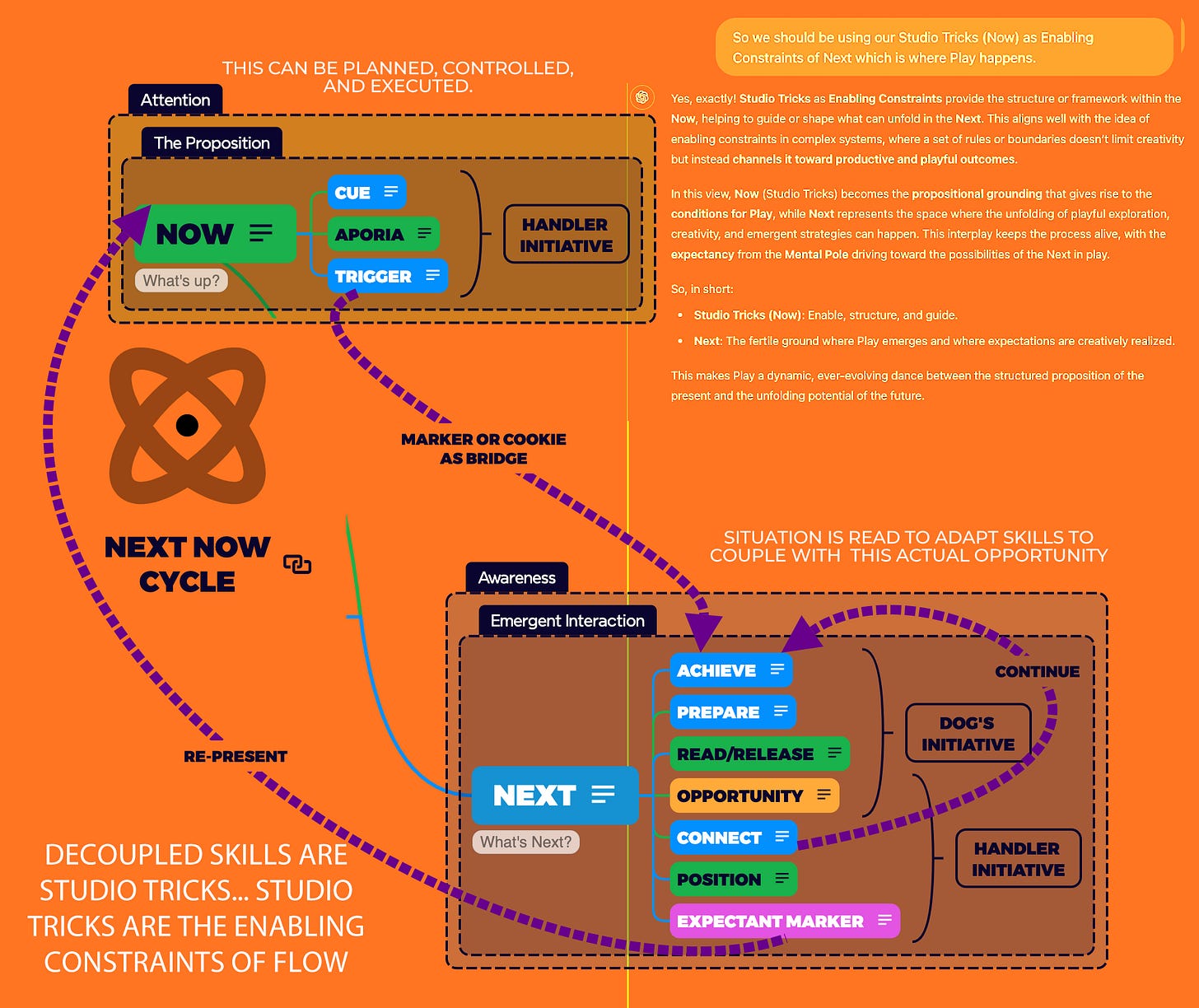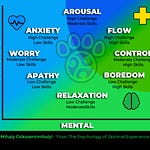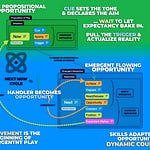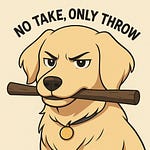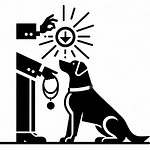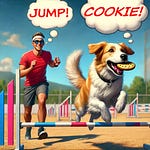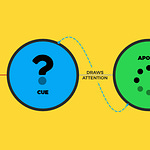I explore prospective reading—using perceptual information that specifies future states to stay ahead of the action—and why handlers need to develop the same awareness skills dogs naturally use for coupling.
You’ll learn how awareness precedes and governs attention (rather than the reverse), why attention collapses awareness and shrinks your ability to pick up relevant information, and how shared subjective aims enable harmonized performance. The piece distinguishes training (mental/operant work in the Now phase) from handling (physical/emergent work in the Next phase where play actually happens).
I cover how action creates information, why handlers move to create dynamic positional relationships while trainers just move their hands, and how marking moments of coupling in flow creates shared understanding.


